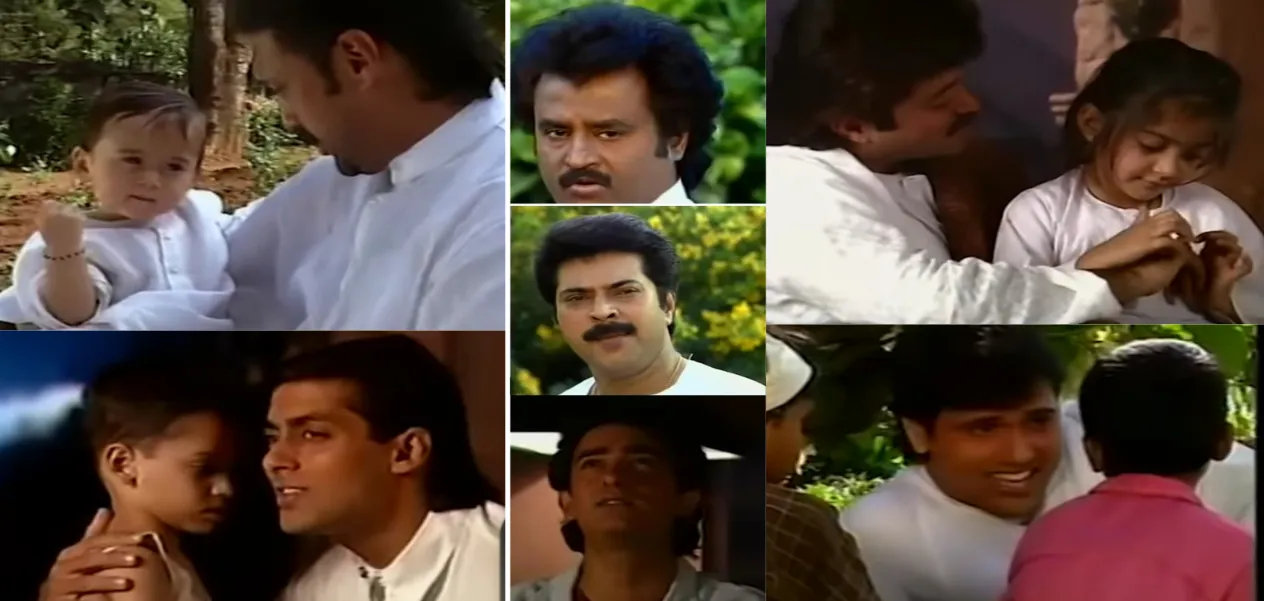
Saquib Salim
In 1993, everyday newspapers carried news of Hindu-Muslim riots, police firings, and bombings. The backdrop was the Ram Janmabhumi Movement and the subsequent Babri Masjid demolition.
The Government asked Bollywood filmmaker Subhash Ghai if the film fraternity could help in dousing the flames of communalism. Ghai took it as an opportunity for the film fraternity to work for peace.
Ghai approached lyricist Javed Akhtar and asked him to pen a song on national integration. Laxmikant Pyarelal composed the music and the result was a song televised on Doordarshan, three weeks after the Bombay Bomb Blasts.
Titled Pyara Bharat Yeh Kahe (Beloved India tells this) this 200-second song opens up with a shot of houses burnt during riots shortly followed by popular actor Jackie Shroff coming on the screen holding his 3-year-old son Tiger Shroff.
Manhar Udhas’s song opens up with Jackie singing to Tiger -sun sun sun mere nanhe sun, sun sun sun mere munne sun, pyar ki Ganga bahe, desh me ekta rahe (listen my little, listen my child, let the Ganges of love flow, let the nation unite). The sequence passes on to legendary singers Mohammad Aziz, Udit Narayan, and Jolly Mukherjee in that order.
Many film actors of the time feature in the song. Anil Kapoor sings to Sonam Kapoor and Rishi Kapoor is seen with Ranbir Kapoor. Ghai believed that if these actors are seen appealing to their children it would send an impactful message. The song features Govinda, Naseeruddin Shah, Aamir Khan, Salman Khan, Sachin, Rajnikanth, Chiranjeevi, Mammotty and Prasenjit.
No actor, singer, or other artist charged his fee for this nation-building project.
The shots of riot-torn cities are used in between the film. The message to stop violence was clear when Aamir Khan is seen (in the voice of Udit Naryan) singing, khatm kaali raat ho, raushni ki baat ho, (dark night should pass, we should talk of light) followed by Govinda singing, dosti ki baat ho, zindagi ki baat ho, (let’s talk about friendship, let’s talk about life) and Salman Khan telling a kid, baat ho insaan ki, baat Hindustan ki (talk of humanity, talk of India)
The song goes on to claim, ab na dushmani pale, ab na koi ghar jale, ab nahi ujde suhaag, ab nahi phaile ye aag (enmity should end, no houses should be burnt, no more killings, this fire shouldn’t spread). At the climax a chorus sings as a crowd of children claims, saare bachche bachchiya, saare budhe aur jawaan, yani sara Hindustan, ek manzil par mile, ek sath phir chale, ek sath phir rahe, ek baar phir kahe, pyar ki ganga bahe, desh me ekta rahe (all these boys and girls, all the old and young, that means the whole of India, let’s meet at one aim, let’s walk together once again, let’s say once again, Ganges of love should flow, the nation should remain united).
While quantitatively it may be impossible to measure the impact of this song it was seen that there was a drastic fall in rioting incidents across India after 1993.
India remained riot-free for the next decade and one may be mind attributing it, maybe among many other factors to, Doordarshan playing this motivation number regularly.
